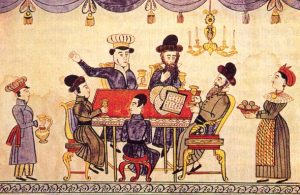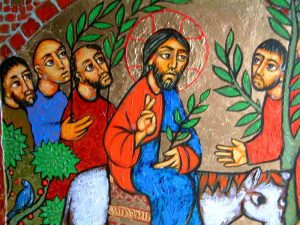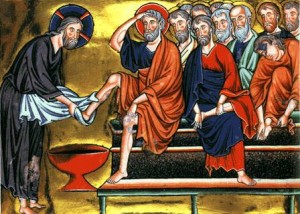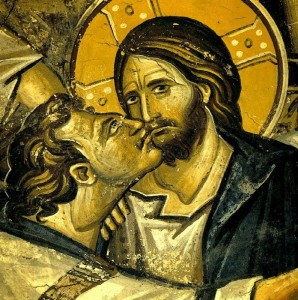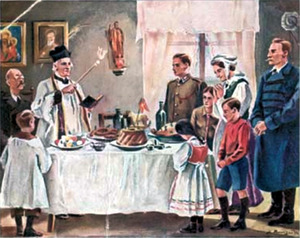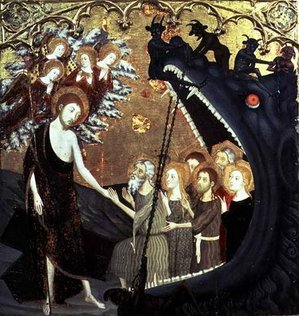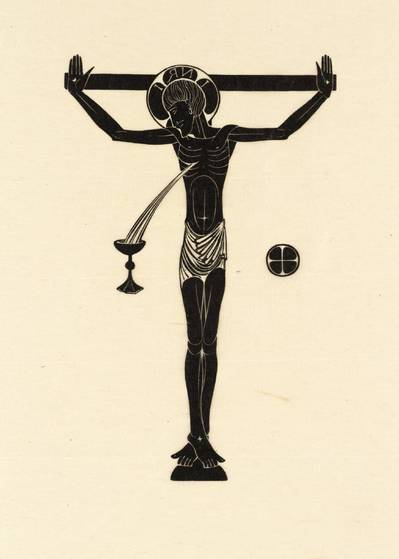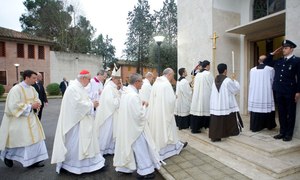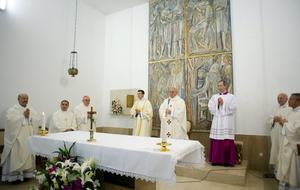Holy Saturday is one of the mis-understood days the sacred Triduum. As a church body, we just don’t have a firm grasp of what Mother Church has to say and experience. Several theologians, for example, Popes John Paul and Benedict, Hans Urs von Balthasar and Richard John Neuhaus have all tried to focus our attention on what God has done for us on Holy Saturday. Father Alexander Schmemann, an orthodox liturgical theologian and priest, is one of my favorite liturgical authors. Sadly, he died of cancer many years ago, but his work continues to bear much fruit, as I hope you will appreciate by reading the following entry. Since today is Holy Saturday for the Orthodox Church, I am offering for our meditation (a review?) the events of our salvation.
Great and Holy Saturday is the day on which Christ reposed in the tomb. The Church calls this day the Blessed Sabbath.
“The great Moses mystically foreshadowed this day when he said:
God blessed the seventh day.
This is the blessed Sabbath
This is the day of rest,
on which the only-begotten Son of God rested from all His works….” (Vesperal Liturgy of Holy Saturday)
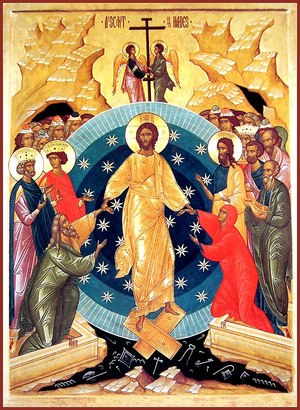
By using this title the Church links Holy Saturday with the creative act of God. In the initial account of creation as found in the Book of Genesis, God made man in His own image and likeness. To be truly himself, man was to live in constant communion with the source and dynamic power of that image: God. Man fell from God. Now Christ, the Son of God through whom all things were created, has come to restore man to communion with God. He thereby completes creation. All things are again as they should be. His mission is consummated. On the Blessed Sabbath He rests from all His works.
THE TRANSITION
Holy Saturday is a neglected day in parish life. Few people attend the Services. Popular piety usually reduces Holy Week to one day–Holy Friday. This day is quickly replaced by another–Easter Sunday. Christ is dead and then suddenly alive. Great sorrow is suddenly replaced by great joy. In such a scheme Holy Saturday is lost.
In the understanding of the Church, sorrow is not replaced by joy; it is transformed into joy. This distinction indicates that it is precisely within death that Christ continues to effect triumph.
Continue reading Holy Saturday from an Orthodox perspective
